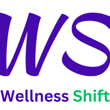What to Expect from Mindfulness Coaching Programs
SOULBLOG
3/14/20255 min read


Click Here for Mindfulness Meditation Course
Click Here for Mindful Marketing Meditation Course
Understanding Mindfulness Coaching
Mindfulness coaching is an emerging practice that aims to help individuals develop a heightened sense of awareness and presence in their daily lives. In today's fast-paced world, where distractions abound and stress levels can soar, mindfulness coaching offers valuable techniques to navigate life's challenges more effectively. The core principle of mindfulness is being fully present in the moment, allowing individuals to observe their thoughts, emotions, and physical sensations without judgment. This form of coaching cultivates an ability to respond to situations with clarity and intention rather than react impulsively.
Unlike traditional therapy, which often focuses on diagnosing and treating specific mental health issues, mindfulness coaching adopts a more holistic approach aimed at personal growth and development. Coaches utilize techniques such as guided meditations, breathing exercises, and reflective practices to help clients cultivate a deeper understanding of themselves and their surroundings. By fostering a non-judgmental awareness, clients can recognize harmful patterns, reduce anxiety, and enhance overall well-being. This transformative process encourages individuals to set achievable goals and create actionable plans to integrate mindfulness practices into their everyday lives.
Another distinction between mindfulness coaching and traditional therapy is the nature of the coaching relationship. Mindfulness coaches serve as facilitators who guide and support clients in their journey rather than providing a prescriptive solution. This partnership emphasizes empowerment, allowing individuals to take ownership of their growth while applying mindfulness principles to real-life scenarios. Overall, mindfulness coaching equips individuals with the tools necessary to cultivate a more balanced, resilient, and fulfilling life amidst the chaos of modern existence.
Benefits of Mindfulness Coaching
Mindfulness coaching programs offer a multitude of benefits that significantly enhance mental well-being and overall life satisfaction. One of the primary advantages is the improvement in mental clarity and focus. By practicing mindfulness, individuals learn to concentrate better on tasks at hand, which can lead to increased productivity in both personal and professional realms. The ability to remain present and engaged not only enhances performance but also fosters a greater sense of accomplishment.
Stress reduction is another critical benefit of mindfulness coaching. The techniques taught in these programs equip participants with tools to manage stress more effectively. For instance, individuals often report a marked decrease in anxiety levels after incorporating mindfulness practices into their routines. Techniques such as deep breathing and meditation enable individuals to calm their minds, thus reducing the chemical impacts of stress on the body. In effect, this decline in stress levels can lead to improvements in physical health, including lowered blood pressure and a strengthened immune system.
Furthermore, mindfulness coaching aids in better emotional regulation. Individuals learn to recognize and accept their feelings without judgment, allowing for a healthier emotional response to challenging situations. As a result, participants often find themselves reacting less impulsively, demonstrating increased patience and empathy in their interpersonal relations. This enhanced emotional intelligence not only benefits the individual internally but also strengthens relationships with others.
Lastly, mindfulness coaching cultivates resilience, enabling individuals to navigate life's challenges with greater ease. Real-life testimonials from participants reveal transformative experiences, such as overcoming personal losses or job-related pressures through the consistent practices imparted during coaching sessions. These benefits and improvements signify that mindfulness coaching goes beyond mere mental exercises; it fosters profound, lasting changes in individuals' lives.
What a Mindfulness Coaching Session Looks Like
A mindfulness coaching session is meticulously designed to facilitate personal growth and self-awareness through structured activities. Typically, each session begins with a warm introduction, allowing participants to establish a rapport with the coach and express any specific goals or challenges they wish to address. This initial dialogue is essential as it sets the tone for the entire session, where individuals are encouraged to articulate their intentions, ensuring a personalized experience that aligns with their unique needs.
Following this introduction, practitioners often engage in mindfulness exercises that serve as the core of the session. These exercises can take various forms, such as breathing techniques aimed at enhancing present-moment awareness, guided meditation to help participants explore their inner thoughts, or journaling prompts that stimulate reflection on personal experiences. Each of these strategies is designed to promote relaxation and attentiveness, allowing participants to disconnect from external distractions and focus inwardly. This practice fosters emotional regulation and stress reduction, critical components in the mindfulness journey.
Once the mindfulness exercises are completed, there is usually a discussion period where participants can share their experiences. This reflective dialogue is pivotal, as it encourages deeper insight into the thoughts and feelings that arise during the practice. It also provides an opportunity to explore how these insights can be applied in everyday life, enhancing the overall impact of the session. Finally, towards the conclusion, the coach and participants collaborate on setting achievable goals for the future, laying the groundwork for continued personal development beyond the coaching session. Overall, mindfulness coaching sessions are structured yet flexible, allowing for an individualized approach that meets the diverse needs of participants.
Choosing the Right Mindfulness Coaching Program
Selecting the appropriate mindfulness coaching program is a crucial step in enhancing one’s mental well-being and achieving personal development goals. To begin, one must evaluate the coach's credentials. It is essential to choose a mindfulness coach with relevant certifications and training in mindfulness practices, ensuring that they possess the knowledge and skills necessary to guide clients effectively. Furthermore, examining the coach’s experience and reviews from past participants can provide insight into their competency and coaching style.
The coaching style of the mindfulness instructor can greatly influence the quality of the experience. Some coaches may adopt a structured approach, while others may be more flexible and adaptable. Consider what resonates with you personally. A compatible coaching style can enhance engagement and willingness to participate fully in the program. Therefore, identifying whether you prefer a more directive approach or one that encourages self-discovery is vital for your success in mindfulness training.
Additionally, the program structure is another key consideration. Pay attention to the curriculum’s duration, frequency of sessions, and format (in-person vs. online). Determine whether the program aligns with your schedule and personal preferences, as flexibility can play an important role in consistency and commitment.
While evaluating mindfulness coaching programs, it is beneficial to inquire about the specific skills that will be taught. Programs may vary in focus, addressing aspects such as stress reduction, emotional regulation, or deepening meditation practices. Understanding the program’s specific aims can help in setting clear expectations and goals.
Taking advantage of trial sessions is advisable; they provide an opportunity to assess the program's compatibility with your personal objectives. Reflect on your experiences and progress throughout the coaching journey to determine whether the selected program meets your needs effectively.




